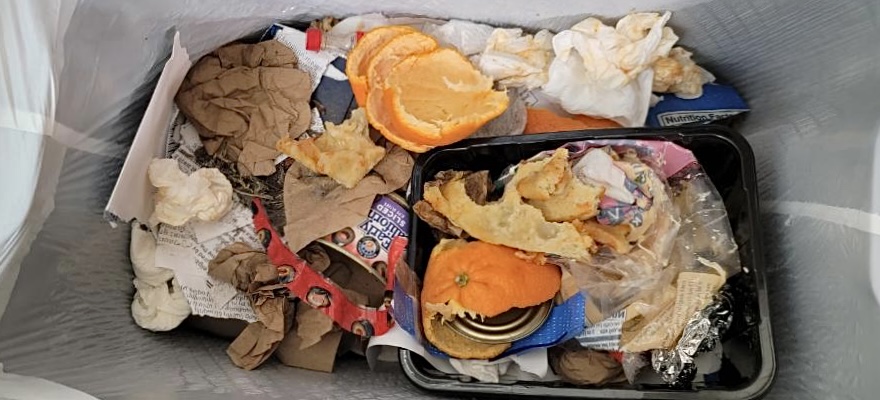
By Arden Nguyen
You have probably thrown away food at least a few times in your life. Chucking a withered apple or last week’s leftovers might not seem like a big deal, but over time, food waste adds up. Imagine how much food we throw away in a year.
In 2018, the Environmental Protection Agency’s estimate for residential food waste was 338 pounds per household. When food waste occurs at home, it is usually because food has gone bad or there is too much of it that can’t be finished.
Wasting food has several negative impacts. First, the energy and resources that go into the production, transportation and sale of food are wasted when that food is uneaten and thrown away. Furthermore, you are losing money when you pay for food that you’ll eventually toss out.
Food waste also has environmental repercussions. When billions of pounds of food end up in landfills, they decompose and release the greenhouse gases, methane and carbon dioxide, contributing to global warming.
The bottom line is that food waste is a serious problem that we can and should work to solve. Although much of food waste also happens during the production process and in stores and restaurants, you can make a difference at home by following these tips.
Freeze food
If you can’t eat food right away and it may spoil soon, freeze it and use it some time in the near future. For example, if you freeze ripe berries and other fruits, you could later whip them up into a smoothie.
Understand labels
Labels on packaging can be misleading and lead to unnecessary food waste if you don’t understand what they actually mean. A “best if used by” date means that food is still safe to eat after this date but it may not have the best quality. A “use-by” date is similar and indicates that you shouldn’t eat the item after this date due to a decrease in quality, but it is still edible. Finally, a “sell-by” date informs stores, not consumers, of the timeframe in which a product should be sold and doesn’t say anything about when the food can be eaten.
Change your shopping habits
To avoid wasting groceries, plan your meals ahead of time with your family and make a grocery list with the ingredients before you go shopping. This ensures that you have everything you’ll need and that the food you buy will be used. Also, don’t buy in bulk if you aren’t sure if you can finish all of the food before it goes bad.
Clean out the fridge
If there is already food in your fridge that is still safe to consume, try to use it before throwing it out or buying more food that will crowd the shelves. Fruits and vegetables that create ethylene gas, like peaches and tomatoes, will ripen quickly and can cause other produce to ripen faster too. This can lead to spoilage, so separate produce that creates ethylene from produce that is affected by it.
Compost
Composting is a great way to make use of food scraps and other organic materials. Organic material is categorized as either “brown” (carbon-rich) or “green” (nitrogen-rich). Besides aerating your pile and adding water as needed, decomposers will take care of everything else. You’ll end up with a mixture full of nutrients that you can give to your plants. However, keep in mind that not everything can be composted; it’s best to leave out things like meat and dairy. Check out this detailed guide to composting from the Natural Resources Defense Council to learn more!
Donate
If your household has excess amounts of food and you can’t eat it all, give it to a friend in need or donate it to your local food bank. Not only does it cut back on food waste, but it will help people facing food insecurity in your community.
“It is heartbreaking that many people don’t have the basic necessities such as food,” junior Jessie Pham said. “Overall, [I] think the problem of food waste needs to be solved by the individual American. And that starts with gratitude. When we are thankful that we have access to food and we realize that people would love to have such a privilege, our food waste will eventually decrease.”





